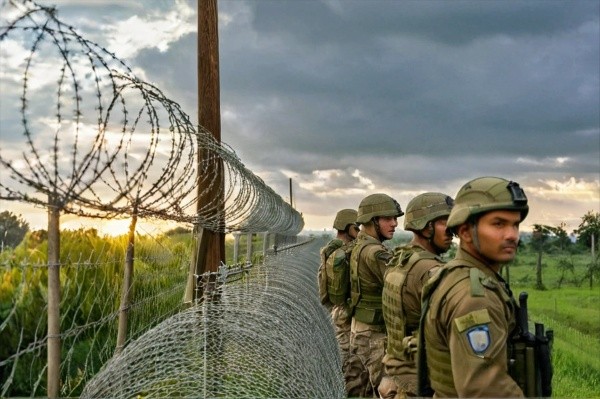Iran’s Plan to Strike Back Against the U.S.
Iran’s Military Preparations Following U.S. Attacks
Loading...

These recent gun battles and the ongoing violence underscore the complex and volatile nature of the Kashmir conflict.
Two separate gun battles in Indian-administered Kashmir have resulted in the deaths of two Indian soldiers and six rebels, according to local police. The incidents, which occurred in the Kulgam district, have raised concerns about the security situation in the disputed Himalayan region.
Kashmir police's Inspector General Vidhi Kumar Birdi reported that security forces conducted "two different operations" in the villages of Modergram and Frisal Chinnigam. The gunfights in both locations were ongoing at the time of the report. Birdi confirmed the retrieval of two rebel bodies from Modergram and four from Frisal Chinnigam.
This deadly encounter is the latest in a series of violent incidents in the Muslim-majority region, where an armed rebellion against Indian rule began in the late 1980s. Although the overall violence has decreased in recent years, tens of thousands of people have lost their lives in the conflict.
The situation in Kashmir remains tense, with India frequently accusing Pakistan of supporting and arming rebels in the region, a charge that Islamabad consistently denies. Both India and Pakistan claim the entire Kashmir region but only govern parts of it, having fought three wars over its control.
The recent uptick in violence follows a period of relative calm. In June, a tragic incident occurred when nine Indian Hindu pilgrims were killed and dozens wounded in a gun attack on their bus in the southern Reasi area. This was one of the deadliest attacks in years and the first on Hindu pilgrims in Kashmir since 2017.
The security situation in Kashmir took a significant turn in August 2019 when Indian Prime Minister Narendra Modi's Hindu nationalist government revoked Kashmir's special status. This move stripped the region of its separate constitution and inherited protections on land and jobs under Articles 370 and 35A of the Indian Constitution.
The government justified this action as a measure to end "terrorism," but attacks have continued, and many Kashmiris feel further alienated from mainland India. The region has since been governed directly from New Delhi, a change that was preceded by an unprecedented months-long security clampdown in what was already one of the world's most militarized regions.
These recent gun battles and the ongoing violence underscore the complex and volatile nature of the Kashmir conflict. The region continues to be a flashpoint between India and Pakistan, with local populations caught in the crossfire of geopolitical tensions and internal strife.
As the situation evolves, there are growing concerns about the long-term stability of the region and the impact of continued violence on both local communities and broader India-Pakistan relations. The international community remains watchful of developments in Kashmir, given its potential to escalate tensions between two nuclear-armed nations.
The persistent violence also raises questions about the effectiveness of current strategies to bring peace and stability to the region, highlighting the need for renewed efforts to address the underlying causes of the conflict and find a sustainable resolution that addresses the concerns of all parties involved.
BMM - MBA
Iran’s Military Preparations Following U.S. Attacks
Troops remain in five strategic locations, raising fears of renewed tensions and long-term occupation.
Opposition forces have taken control of the capital after a significant offensive. Here is how it unravelled.
